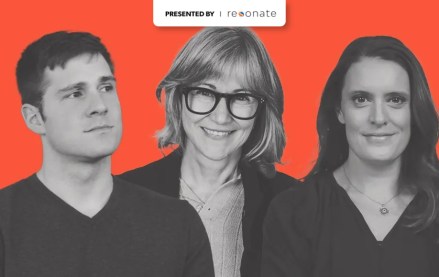
Everyone from app developers to viral publishers has learned that what Facebook gives, Facebook can quickly take away. Count Facebook’s preferred marketing developers among this group.
Since 2009, Facebook has been effectively outsourcing enterprise software development to a pool of PMDs, a motley crew of hundreds of ad tech companies, such as giants Adobe and Salesforce and small fries Ampush and One Public. The PMD label works as a certification that brands and agencies could trust those firms to create reliable tools for brand management on Facebook. The Facebook imprimatur helped many supplant agencies as the way marketers navigating buying ads on Facebook.
But then, in April, Facebook launched Business Manager, an enterprise feature that would allow advertisers and their agencies to more effectively manage their Facebook presences. While great for Facebook buyers — and thus great for Facebook — the seemingly innocuous tool and a lack of capital in the ecosystem could spell doom for many of Facebook’s ad partners, according to Fahad Khan, CEO of One Public, one of Facebook’s PMDs. After all, it centralizes many of those tools into a Facebook-owned-and-operated offering directly available to brands and advertisers.
“Facebook has a tool that incorporates everything a marketer needs,” Khan said. “If you’re [an advertiser] starting now and you have a big budget, $1 million or more, you don’t need to use the PMDs.”
The idea is that Facebook will slowly do away with the need for PMDs. Some see social ad consolidation, such as Sprinklr buying Dachis Group earlier this year and Brand Networks acquiring Optimal last fall, as a sign of this move.
Some PMDs are far less worried, saying that the release of features like Business Manager are to be expected, not feared.
“Every smart company has to believe that Facebook will put a limitless amount of money into supporting its own platform and that it will compete with other segmented platforms that PMDs have built,” Jan Rezab, CEO of Socialbakers, also a Facebook PMD. If a Facebook PMD fails, then “it didn’t develop fast enough,” he added.
Rezab added that Facebook relies heavily on PMDs to grow its business and that Facebook’s Power Editor product was a more substantial threat to PMDs than Business Manager.
“I don’t view it as competitive at all with what we do,” said Chris Amos, CMO at Ampush, a Facebook PMD. “Business Manager seems more like a permissions-based administrative tool to make it easier for agencies and clients to work more closely together. If that’s the value you’re bringing to the ecosystem, then I could see why you’d be concerned.”
Still, being wed to Facebook is an uncertain existence for an ad tech company. There’s always the threat that the complementary technology will be rendered irrelevant by the very company it serves.
Nanigans, also a Facebook PMD, announced last week that it was pivoting to a subscription as a service model — instead of managing clients’ Facebook presences, it will sell them software that will allow those marketers to do it themselves. Nanigans, which declined a request for comment, also said it would stop focusing solely on Facebook.
The biggest disruption happening in ad tech is not necessarily RTB but the direct-to-publisher client relationship that Facebook and Google have created,” Nanigans CEO Ric Calvillo told AdExchanger in a recent interview. “They’re going to push, we estimate, a third of [advertisers] to manage in-house with no middlemen – no media agency, no ad network, no DSP.”
Image via Giphy
More in Media

Digiday+ Research: Publishers take their focus off events as revenue dips
The percentage of publishers making money from events hit a low as of the first quarter of this year and, as a result, fewer publishers plan on putting a focus on growing that part of their business.

What platforms, brands and agencies hope to get out of the Possible conference in year 2
Year two of Possible is once again being held in Miami Beach, and it will take place from April 15-17 with 3,000 attendees expected to listen to another 200 or so speakers, including Snap’s Colleen DeCourcy, Uber Ads’ Megan Ramm and UM Worldwide’s Matthew Smith.

AI Briefing: Cloud giants’ AI ambitions create new partnerships — and new competitive concerns
Last week, tech companies like Google, Microsoft and Amazon all announced updates more updates for their cloud and AI efforts





